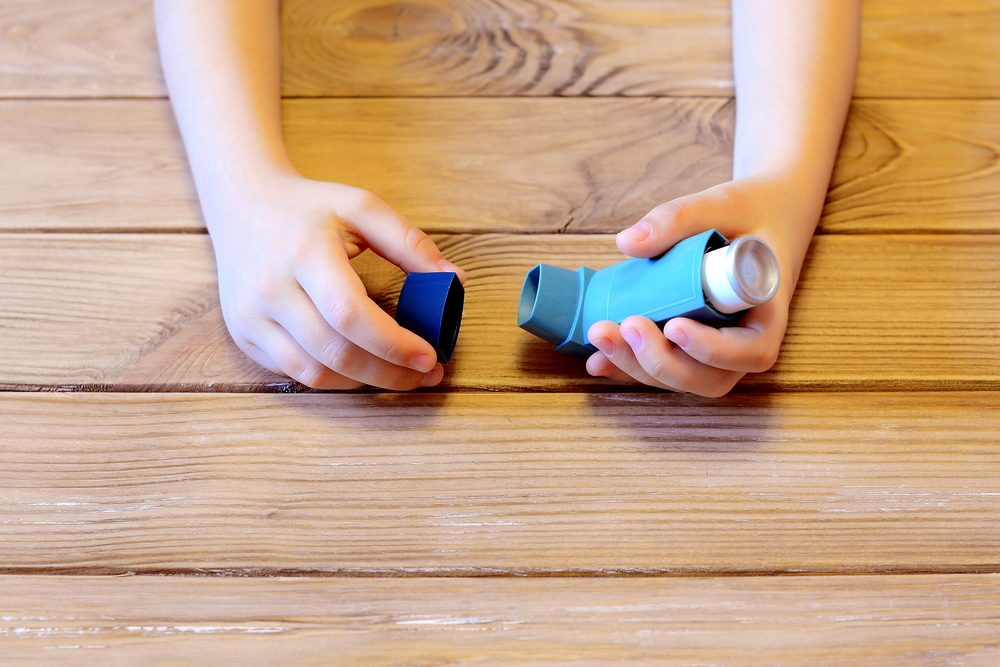What is croup & how is it treated?
Medically Reviewed by Dr Davinder Nagah
Last updated on 24.08.2023
What is croup?
- Croup is an infection of the airways, usually caused by a virus, which affects young children, and peaks in autumn and winter.
- Parents often recognise the tell-tale barking cough, and sometimes compare it to the sound of a sea-lion.
- This distinctive sound is caused by swelling of the larynx (voice-box) and trachea (windpipe).
- Croup is most common in children under the age of three, but may occur up to the age of five or six.
- As the windpipe (trachea) matures, it gets wider and stronger, so that older children and adults don’t tend to suffer from the barking cough, though they may get other symptoms such as a runny nose, hoarseness or sore throat.
What causes croup?
- A number of different viruses can cause it- these include parainfluenza, influenza, respiratory syncytial virus (RSV), adenovirus and rarely, measles.
- Occasionally it can be caused by bacteria.
- So, unlike some other viral illnesses which only happen once in a child’s life, croup can happen many times because there are several culprit viruses.
What are the symptoms of croup?
Symptoms of croup include a harsh or barking cough- this is what parents usually pick up on, though there may be other issues including:
- Stridor (noisy harsh breathing/tightness in the throat)
- Rapid breathing, or increased effort of breathing, often noticed in the muscles of the tummy, chest or neck
- Runny nose
- High fevers
- Distress or restlessness, particularly at night when the croupy cough and stridor tend to be worse.
Symptoms of croup tend to peak at 1-3 days and then begin to settle, though a milder irritating cough and runny nose may continue for a further week or so.
What is the treatment for croup?
- Ideally, a child should be kept as calm as possible- crying can cause increased tiredness in a child who is already struggling to breathe.
- Smoking around the child must be avoided.
- Cough medicines and antihistamines are not advised as treatment for croup- they do not help the symptoms, and may cause drowsiness, which can be dangerous if a child is already tired from the extra effort of breathing.
- If there is just a mild occasional barking cough, with no other symptoms of croup, simply observing the situation at home may be appropriate.
- If the bouts of croupy cough are becoming more frequent, it is best to have your child assessed by a doctor- in some cases of mild to moderate croup, oral steroids may be considered.
- These medicines don’t shorten the illness but they may reduce the severity of breathing symptoms.
When should you see a doctor?
- If a child is noted to have stridor (as described above) or any other breathing difficulty, develops persistent high fevers, seems agitated or lethargic, has difficulty swallowing, or if their skin looks pale or blue- urgent medical attention should be sought.
- If your child is struggling to breathe call triple zero (000) immediately and ask for an ambulance.
- All in all, croup is common, usually mild, and settles within a few days. But if you have any worries or concerns, be sure to seek advice from your local GP or paediatric emergency department.
Additional Patient Resources for Australians
On a vegan diet?- some important things you should know
Vegan diet- a beginner's guide What is a vegan diet? A vegan diet, also known as plant-based, describes one that avoids any animal products. There are many subtypes of [...]
How to get rid of Jock Itch
How to get rid of Jock Itch What is Jock Itch? Jock Itch is a common name for the medical condition also known as "Tinea Cruris". Jock Itch is [...]
Acid reflux- what causes GORD, and how to get rid of it
Acid reflux- what causes GORD, and how to get rid of it Acid reflux is when stomach acid flows from the stomach upwards into the oesophagus. The oesophagus (us-off-a-gus) [...]
Why request an Asthma Action Plan?
Why request an Asthma Action Plan? What is an asthma action plan? A key part of asthma management is the preparation of a written asthma action plan by the [...]
How to get rid of a UTI
How to get rid of a UTI What is a UTI? UTI stands for Urinary Tract Infection (also referred to as a bladder infection or cystitis). UTIs are common, [...]
Lower Urinary Tract Symptoms in Men
Lower Urinary Tract Symptoms in Men What are Lower Urinary Tract Symptoms? ‘Lower urinary tract symptoms’ are symptoms related to passing urine and are common in men as they get [...]










